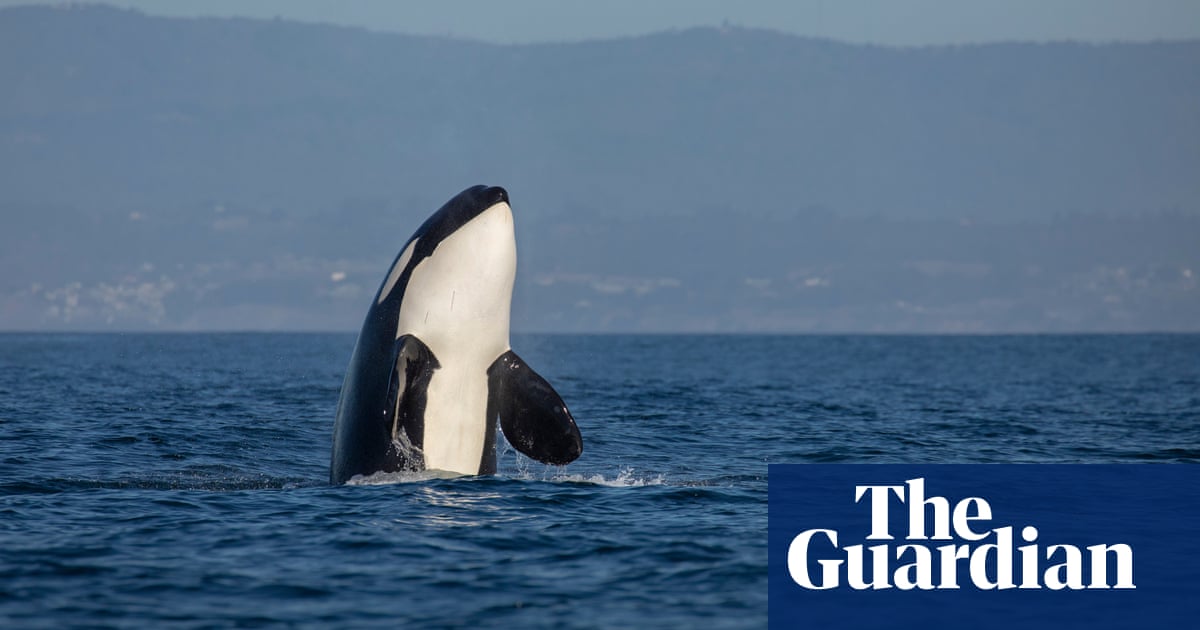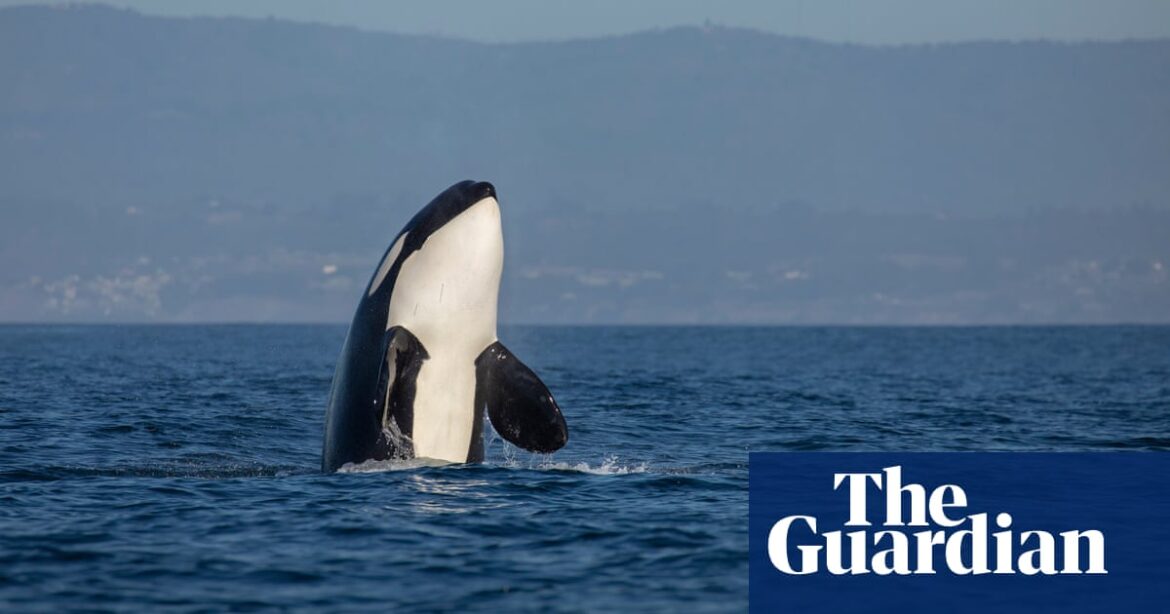
Scientists were shocked by a recent event where a killer whale swiftly killed and devoured a great white shark, then proceeded to take the shark’s liver with it as it swam away.
Specialists suggest that the gathering near the shores of Mossel Bay in South Africa provides fresh understanding of the hunting patterns of killer whales.
It has been recorded that orcas hunt sharks, dolphins, and even whales on their own. However, the recently reported incident is believed to be the first documented instance of a single orca taking down the largest predatory fish in the world.
Dr. Alison Towner of Rhodes University, who led the research, stated that killer whales, also known as orcas, typically work together when hunting. However, they are also capable of hunting on their own. The reason for this is that they are highly intelligent and adaptable creatures, and this can be seen in the unique event of Starboard, a killer whale, taking down a white shark on its own in a surprisingly short amount of time.
The occurrences that took place on June 18, 2023, are recorded in the African Journal of Marine Science. It is a series of events that could easily belong in a Spielberg film.
The researchers observed a boat being launched just after 2pm to respond to reports of Starboard and Port, two killer whales. As the team tracked the whales, they noticed the presence of a shark liver smell and diving kelp gulls, suggesting a recent kill.
The following assault happened quickly: at 3:02pm, a young white shark emerged from the water’s surface. Soon after, Starboard also appeared.
According to the report, the whale grabbed the shark’s left pectoral fin and repeatedly thrust forward, eventually eviscerating it. Shortly after, the whale was spotted with a reddish-pink piece of liver in its mouth.
The assault was additionally recorded by scientists and visitors aboard a separate ship that had participated in activities involving diving in shark cages.
The scientists have documented that every other observed occurrence in the area where orcas hunt sharks involved a group of two to six orcas and lasted around two hours.
Although Starboard was successful in killing the young great white shark, which was approximately 2.5 meters long and weighed around 100kg, it may require assistance from other sharks to take down larger prey. This is because adult great white sharks can reach sizes of up to 6.5 meters and weigh up to 2.5 tonnes.
In earlier investigations, the team discovered that Port and Starboard, identifiable by their differently angled dorsal fins, have been co-hunting near the South African shoreline in recent times.
The duo seems to have a preference for consuming the nutrient-rich livers of sharks, but scientists are uncertain how the orcas are able to access these organs from the larger sharks.
There is concern that the activities being carried out may lead to displacement of different shark species, specifically great white sharks, from their coastal habitats.
Dr. Primo Micarelli, a writer of the recent research conducted by the Shark Studies Centre and Siena University, was present during the incident with Starboard. He described the encounter of seeing the orca carrying the liver of a great white shark past the vessel as a truly unforgettable experience. However, he also expressed his growing concern for the coastal marine ecosystem and its balance in relation to these predator species.
Source: theguardian.com



